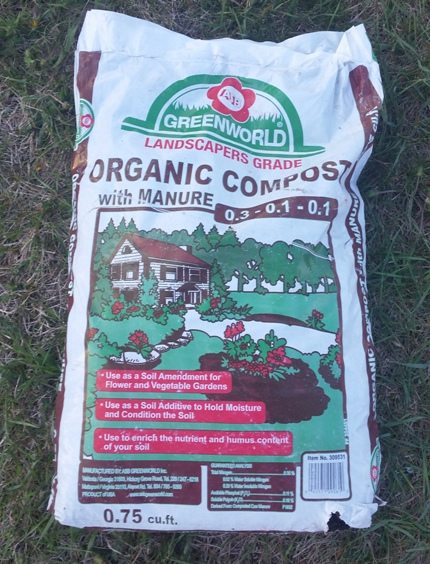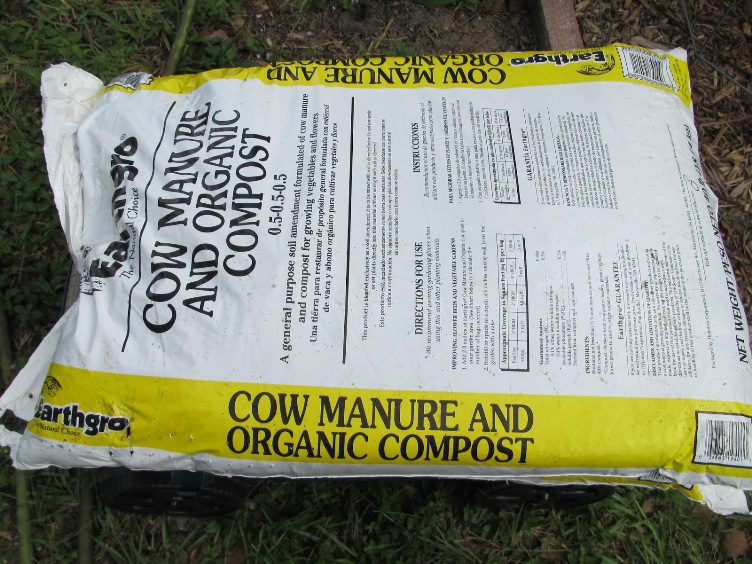Do you have any idea what is really in that bag of compost you buy from the garden center? Where does the humus come from, and why are some brands labeled LANDSCAPE GRADE, and others aren’t?
 I’ve always tried to avoid buying landscape grade, suspecting that it wasn’t good for growing food. So, why is it labeled ORGANIC?
I’ve always tried to avoid buying landscape grade, suspecting that it wasn’t good for growing food. So, why is it labeled ORGANIC?
There’s a bag in the garage that I accidentally bought and I noticed that the nutrient analysis is much lower than the regular organic compost with cow manure.
There are no ingredients listed on the bag other than that the nutrient content is derived from composted cow manure. The product name is Organic Compost With Manure. Note that the cow manure isn’t stated as organic.
What is the real difference between regular bagged organic compost with cow manure and this landscaper’s grade stuff? A quick online search turned up empty. Surely, there’s some regulation on what they can label as compost.
Unfortunately, that’s not the case.
No one makes sure that organic compost with cow manure is really organic.
There is no compost police; no inspectors testing these piles that fill the bags of supposed manure-enriched compost. The bag says organic, but there is no oversight. There’s nothing synthetic inside the bags, so they can say that it’s organic without it actually being organic. You won’t find a certified organic bag of commercially packaged compost anywhere in the U.S.
The USDA does not regulate compost, even when it’s used on organic farms for growing fruits and vegetables. The EPA doesn’t regulate it either, unless it’s composted human manure, commonly referred to as sludge or biosolids.
Many other countries do have regulations in place to ensure that compost sold meets quality guidelines. Unfortunately, Americans are putting bags of ‘organic’ compost in their veggie garden that is definitely not chemical-free, and no doubt stretched with fillers like sawdust and fresh peat moss, soil, and even rocks.
There is an organization called the U.S. Compost Council that was created by Proctor & Gamble in the early ’90s as a promotional stunt for composting disposable diapers after some states banned them from landfills.
Disposable diapers are not compostable, and it caused a stink nationwide. So, P&G never did anything with their diaper composting idea, but the USCC remains in operation and makes money on testing compost for some composting companies.
For a hefty fee, they receive a lab analysis of a lot more than nutrient content, including pH, respiration rate, and salt content – along with the USCC Seal of Testing Assurance. However, this isn’t a regulatory organization. Testing is voluntary. The USCC is a private for-profit business.

Notice how the label is worded on the bag pictured above? The compost is stated as ‘organic’ – but not the cow manure.
Perhaps it’s best just to make your own compost at home, so you know exactly what’s going into and just how organic it truly is.
Last image courtesy of Imperfectly Frugally.
Last updated by Catherine Sherriffs on 27/04/2020.